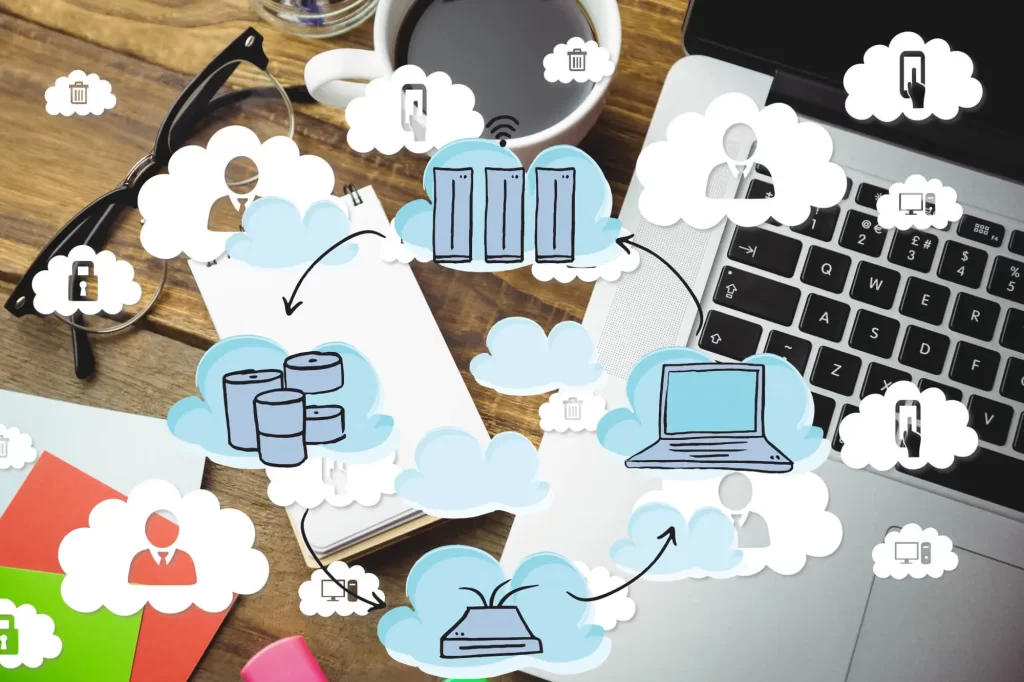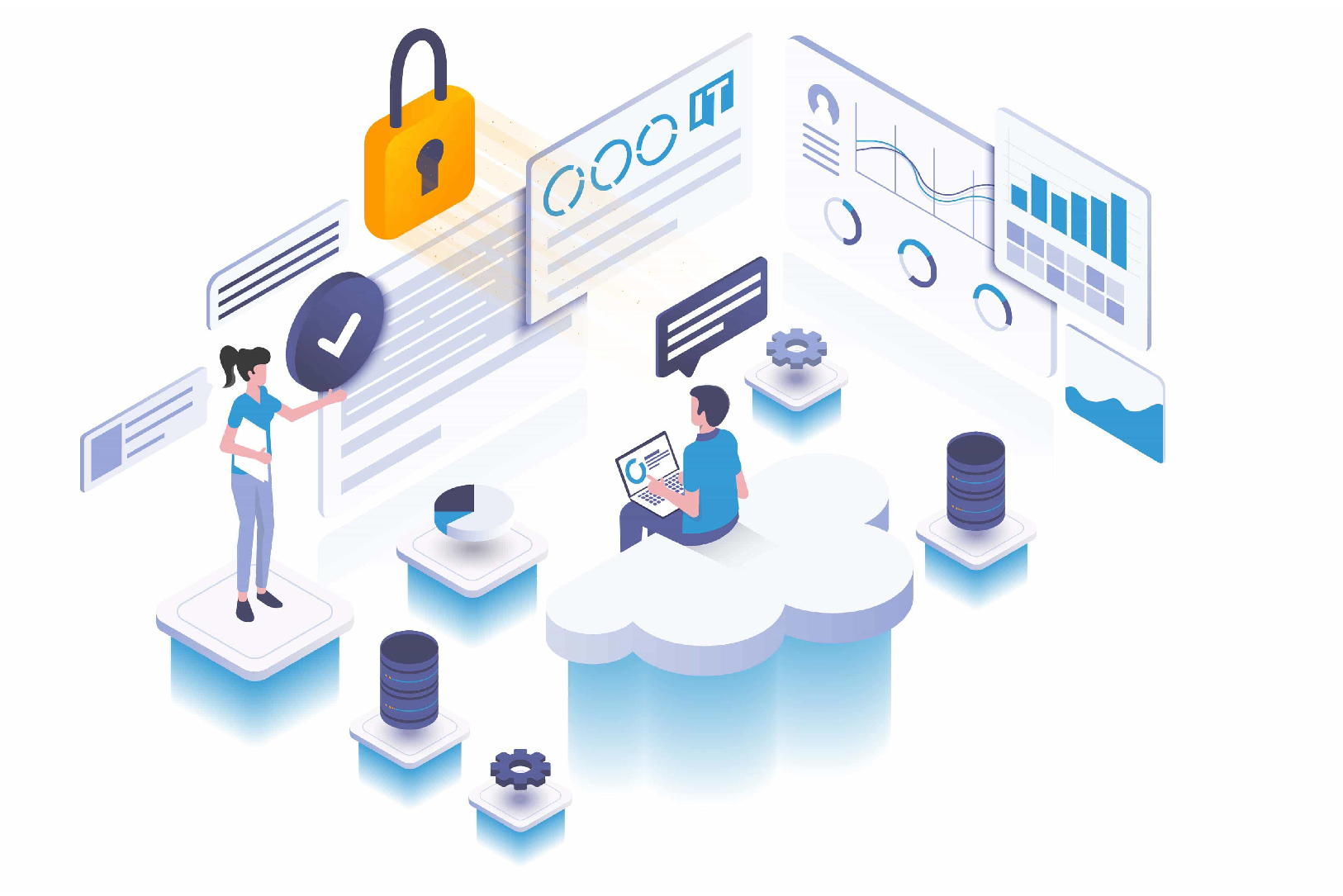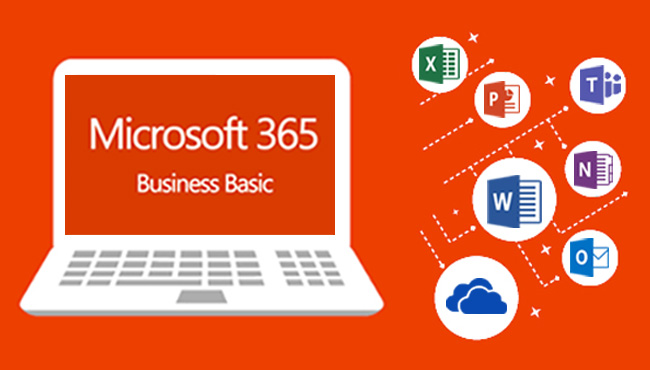The digital world, using data analytics in vast amounts, is witnessing a paradigm shift with the rising popularity of low-code, no-code, and LAN platforms in information and business processes. These platforms are transforming the traditional landscape of application development, enabling individuals with minimal or no coding expertise to create complex and efficient applications – this refers to the application development process. This trend is reshaping the IT services sector, compelling it to adapt to these innovative methodologies for automation of everything — from customer support to troubleshooting and security solutions.
Understanding Low-Code and No-Code Platforms
Low-code and no-code platforms are based on the principle of making software development and application development as simple and accessible as possible. They utilise graphical user interfaces with intuitive drag-and-drop features and pre-built templates, significantly reducing the need for traditional hand-coded programming in various software systems. This approach democratises application development, enabling organisations in the creation and allowing users from various backgrounds to contribute to the modification of software.

The Driving Forces Behind The Popularity of No-Code Cloud Computing in IT Services
Several factors contribute to the growing popularity of these platforms, including:
- Digital Transformation: As businesses undergo digital transformation, the need for rapid application development has surged.
- Technical Expertise That Enables Organisations to Narrow the Skill Gap: There is a significant gap in skilled programmers, and these cybersecurity services provide a solution to bridge this gap, specifically by using data analytics.
- Innovation, Scalability, and Agility — Key to Business Success: Companies are looking for ways to innovate quickly and respond to services market changes with agility, which our managed print services facilitate.
Impact on Business Operations
Low-code and no-code platforms are revolutionising how businesses operate.
- Enhanced Productivity in Infrastructure Outsourcing: They enable faster development and deployment of applications, leading to increased productivity and streamlined operations, making them the choice for businesses.
- Cost Reduction Through Streamlined Application Development and Deployment: Businesses can save on the costs associated with hiring a large team of developers and still get access to different software choices.
- Empowerment: Employees across different departments can contribute to VoIP system and application development, fostering a culture of innovation and collaboration.
The Role of Outsourced Information Technology (IT) Services in This New Era
The emergence of low-code and no-code platforms has significantly transformed the landscape for IT service providers. This transformation has led to a shift in roles and responsibilities with the requirement of technical expertise to enable organisations. Let’s delve deeper into the evolving role of IT services in this new era.
Advisory Role
- Strategic Guidance: IT professionals are now playing a more strategic role, offering guidance on the selection and implementation of low-code and no-code platforms. They help businesses understand which platform, including BPO and managed print services, aligns best with their specific needs and objectives. They have more access to information and business data analytics for decision making purposes.
- Best Practices and Optimisation: Beyond just recommending platforms like in-house teams, outsourced IT experts provide insights into best practices for their use, including system updates and antivirus software in the light of latest technologies. They advise optimising these platforms to achieve maximum efficiency and productivity.
- Change Management for Scalability: The introduction of new technologies like VoIP and Virtual Private Networks often requires a change in organisational culture and processes. IT services play a crucial role in managing this change, ensuring a smooth transition and minimising disruption to business operations.
Integration and Customisation
- Seamless Integration Achieved Through Consulting Services: One of the critical challenges businesses face is integrating applications developed on low-code or no-code platforms with their existing IT infrastructure, requiring effective disaster recovery measures. IT services focus on creating seamless integration, ensuring that new applications and software updates work harmoniously with legacy systems.
- Customisation for Specific Needs: While low-code and no-code platforms offer a range of pre-built solutions, they may not always perfectly fit a business’s unique requirements. IT services step in to customise these solutions, tailoring them to meet specific business needs and workflows.
- Continuous Improvement and Updates Delivered by Different IT Services: The digital landscape, including the application outsourcing services market, is continuously evolving, and applications need regular updates and improvements in cybersecurity services. IT services ensure that applications developed on these platforms are not only integrated but also kept up-to-date with the latest features and security updates.
Security and Governance
- Robust Security Measures Provided by IT Services: With the democratisation of app development, there’s an increased risk of security vulnerabilities. IT services companies are tasked with implementing robust security measures to protect sensitive_data, prevent breaches, and provide on-site support when necessary.
- Data Governance and Compliance: Ensuring compliance with data protection regulations and optimisation of or access to data analytics is more crucial than ever. IT services help businesses navigate these complex regulations; these consulting services implement data governance strategies and infrastructure services that comply with legal standards like GDPR, HIPAA, etc.
- Risk Assessment and Management: IT professionals conduct regular risk assessments to identify potential security threats and vulnerabilities within the applications; preventive measures and disaster recovery services can also help. They develop risk management strategies and provide cloud backup to mitigate these risks, ensuring the safety and integrity of business data.
The Impact on Traditional IT Services & Cloud Solutions
The advent of low-code and no-code platforms is significantly impacting IT services, necessitating a strategic shift in their approach and offerings.
The Changing Role of IT Service Professionals
The role of IT professionals is evolving from being predominantly coders to becoming strategists, integrators, key players in making business decisions, and providers of different IT services. Different IT services designed for business environment, with specific focus on SMEs, are now focusing on:
- System Integration: ensuring that recovery services are in place so applications developed on low-code or no-code platforms seamlessly integrate with existing systems in case of downtime.
- Security Management: Overseeing the security aspects of applications to protect against cyber threats, including services that provide protection against intrusion.
Demand for Specialised Business Process IT Services
As businesses increasingly adopt these platforms and use technology, the demand for specialised IT services is growing.
- Custom Integration Solutions: Developing custom solutions to integrate various applications and systems.
- Advanced Security Protocols: Implementing advanced security measures to safeguard applications developed on these platforms.
Training and Empowerment for Business and Technical Expertise
IT services are also playing a crucial role in training and empowering non-technical staff to use these platforms effectively.
- Conducting Off-Site Workshops, Help Desk Support Training, and Technical Training Sessions: Organising sessions to educate employees about the capabilities and best practices of using low-code and no-code platforms.
- Providing Ongoing Support and Single Point of Contact for Users: They offer support to resolve any issues and ensure smooth operation of the software systems; these services aim to bolster operational efficiency and become the right choice for businesses.
Challenges and Solutions of Business Process Outsourcing
While low-code and no-code platforms offer numerous benefits, they also present unique challenges that IT services need to address.
Data Security and Compliance When Providing IT Services
One of the primary concerns with these platforms is ensuring data security and regulatory compliance.
- Robust Security Measures: Implementing stringent network related terms like network security protocols such as firewall to protect sensitive data.
- Regular Compliance Audits: Conducting audits to ensure that the applications meet regulatory standards.
Training and Support for Application of Business and Technical Platforms
Providing adequate training and support is crucial for the successful adoption of these platforms.
- Comprehensive Training Programmes on Hardware and Software: Developing detailed training modules to educate users about the functionalities, cybersecurity services, and best practices.
- Responsive Support Services for Operating Systems: Offering prompt and effective support services, including system updates, to address any technical issues.
Integration with Existing Systems to Benefit Your Business
Ensuring seamless integration of applications developed on these platforms with existing systems is a key challenge – this refers to the application integration process.
- Custom Integration Tools Offering Infrastructure Services: Developing tools and methodologies for effective integration and providing help desk support.
- Expert Consultation and Project Management Services for VoIP and Antivirus Implementation: Providing expert consultation and application outsourcing services to businesses for smooth integration.
Future Trends of Managed IT Services
The future of low-code and no-code platforms looks promising, with several trends shaping their evolution in technical support and application services.
- AI and Machine Learning Integration: Integrating artificial intelligence and machine learning will automate more complex aspects of application development, making these platforms even more powerful.
- Enhanced Customisation: Future iterations of these platforms are expected to offer greater customisation options, allowing businesses to tailor applications more precisely to their needs.
- Collaboration between IT and Business Units: There will be a greater emphasis on collaboration between IT departments and other business units to ensure the effective use of application outsourcing platforms in making business decisions.
Partner with That’s IT Today
The rise of low-code and no-code platforms is a transformative trend in the IT industry, offering both challenges and opportunities, especially in the business environment where services are outsourced. IT services, including infrastructure services, hardware and software, and network security, need to adapt by focusing on integration, security, data backup, and empowering users.
That’s IT is ideally positioned to guide businesses through this transition. We offer comprehensive IT consultation and implementation services, including BPO and data backup, ensuring your business leverages the infrastructure services’ full potential. Our 24×7 network monitoring and remote/onsite support services, including cybersecurity, ensure that your IT infrastructure is secure, efficient, and aligned with your business goals.
Choose That’s IT for a seamless transition to modern IT solutions. Our commitment to our role as your point of contact for customer satisfaction, flat-fee billing with no hidden costs, and round-the-clock unlimited support services make us the ideal partner in your digital transformation journey. Trust us to handle your IT worries, so you can focus on growing your business.







